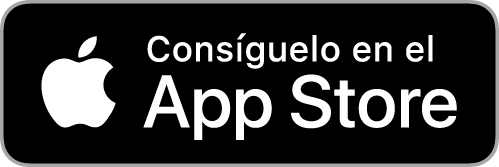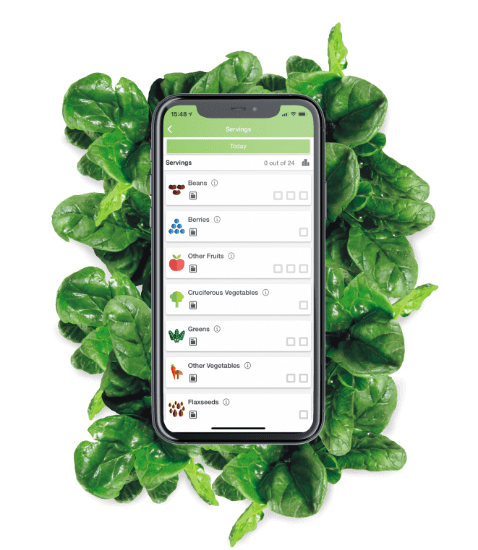
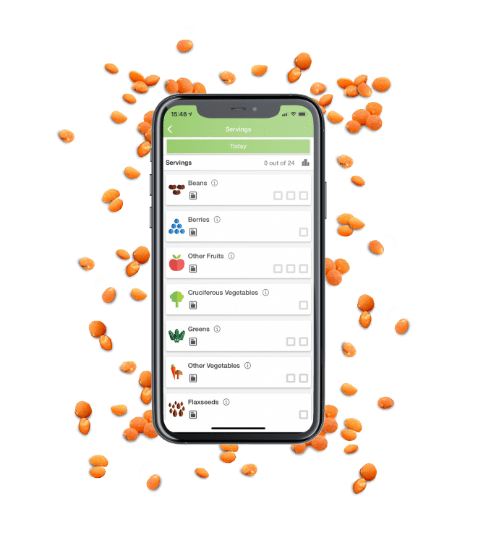
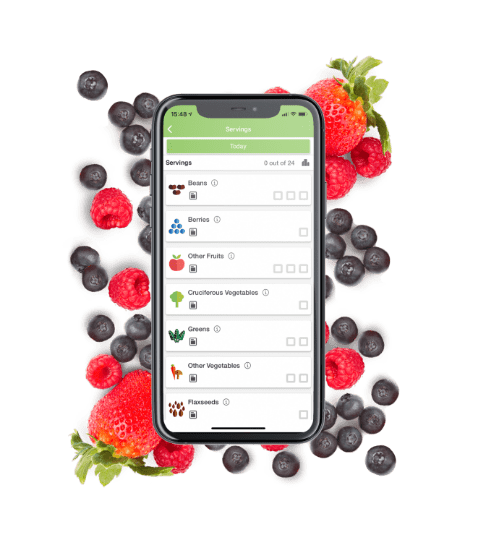
No olvidarás tus
hojas verdes de nuevo.
No olvidarás tus
legumbres de nuevo.
No olvidarás tus
frutos rojos de nuevo.
Aprende más sobre la app

El patrón nutricional vegetal integral no necesita gran explicación, ¿no?
Cuantos más años se pasa el Dr. Greger investigando, más se convence de que los alimentos saludables no son siempre intercambiables. Algunos alimentos y grupos alimentarios tienen nutrientes especiales que no están presentes en buenas cantidades en otros alimentos. Como los tipos de alimentos que intentaba consumir diariamente empezaban a ser bastantes, se hizo una lista que acabó convirtiéndose en la Docena Diaria.
Sumérgete en la ciencia detrás de la Docena Diaria. Échale un vistazo a los videos en la página temática.
Página Temática Video de La Docena Diaria
La Docena Diaria
La Docena Diaria del Dr. Greger se diseñó con la mejor evidencia nutricional disponible. No es un régimen de comidas ni una dieta, sino una lista para inspirarte a incluir algunos de los alimentos más sanos en tu dieta. Esta app de salud te ayuda a pensar cómo diseñar tus comidas y mejorar su densidad nutricional. Es un mínimo al que aspirar que puedes adecuar a tus necesidades. Plantéatelo como un diario de comidas.
Ahora también incluye los 21 potenciadores para la pérdida de peso, basándose en el libro Comer para no engordar. Si buscas mejorar tu salud, mantenerla o perder peso de forma sostenible, descárgate la app de la Docena Diaria ¡y empieza hoy mismo!
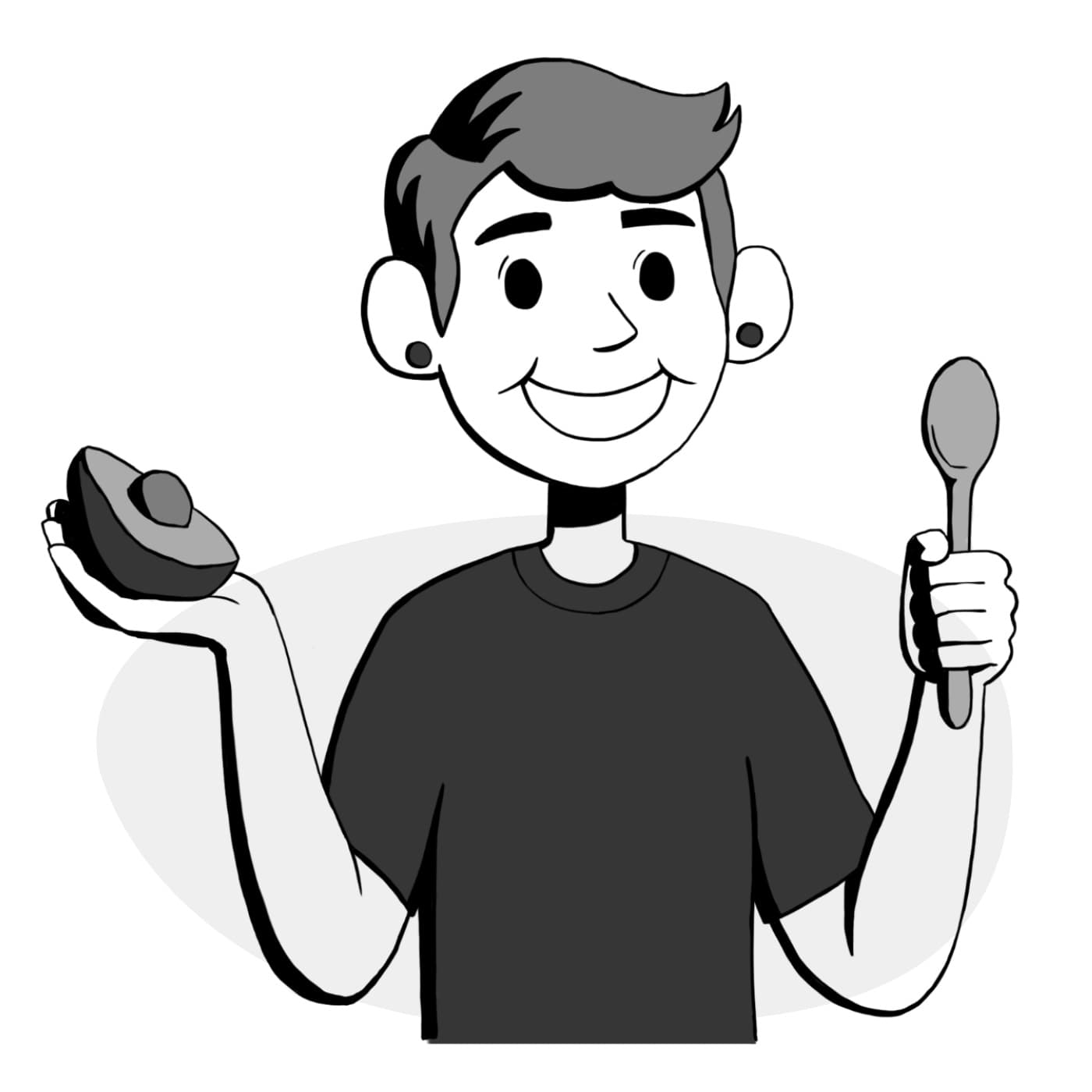
1. Prepara comidas deliciosas que incluyan los alimentos de la Docena Diaria.

2. Haz un seguimiento de tus porciones en la app.
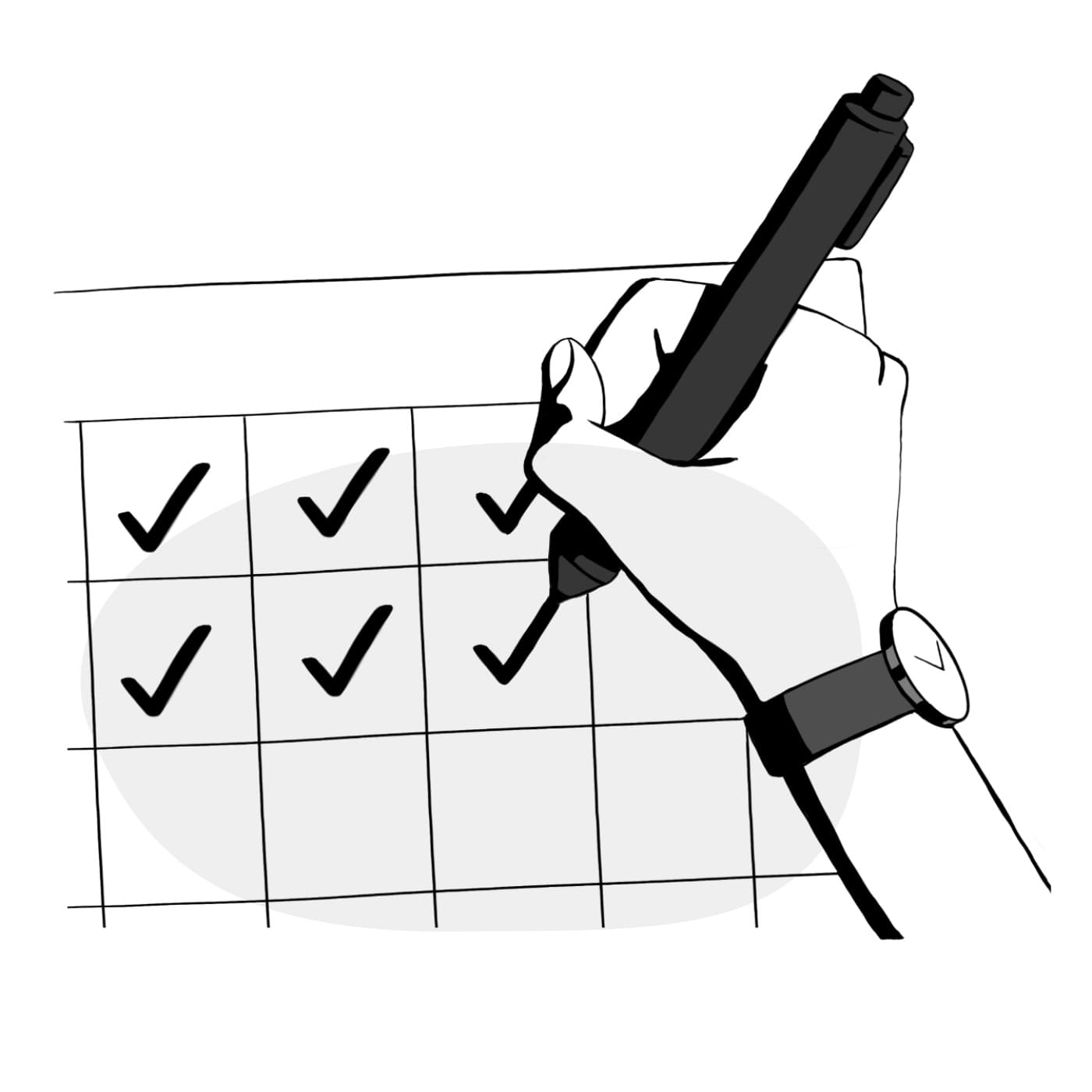
3. Repite este proceso hasta que comer
sano te resulte natural.
Curso práctico de la Docena Diaria
Apúntate a nuestro curso de 11 semanas por correo electrónico para aprender a comerte la Docena sin estrés. Cada semana recibirás un email con trucos, consejos, información y recetas deliciosas para que puedas incorporar los alimentos más sanos en tu día a día.
La infografía de la Docena Diaria
La infografía está disponible en varios idiomas. Selecciona el que quieres para descargar el PDF.
Legumbres
Raciones: 3 al día
ej.: 130 g frijoles cocidos, 60 g hummus
Frutos rojos
Raciones: 1 al día
ej.: 60 g frescos o congelados, 40 g deshidratados
Otras frutas
Raciones: 3 al día
ej.: 1 pieza mediana, 40 g deshidratada
Hojas verdes
Raciones: 2 al día
ej.: 60 g crudas, 90g cocinadas
Crucíferas
Raciones: 1 al día
ej.: 30-80 g picadas, 1 cda. rábano rusticano
Otras verduras
Raciones: 2 al día
ej.: 50 g de verduras (no de hoja)
Linaza
Raciones: 1 al día
ej.: 1 cda. molida
Frutos secos y semillas
Raciones: 1 al día
ej.: 30 g de frutos secos, 2 cdas. de manteca de frutos secos
Hierbas y especias
Raciones: 1 al día
ej.: ¼ cdita. cúrcuma
Cereales integrales
Raciones: 3 al día
ej.: 100 g cereales calientes o 1 rebanada pan
Bebidas
Raciones: 1750 ml al día
ej.: agua, té verde, hibisco
Ejercicio
Raciones: 1 al día
ej.: 90 min. moderado o 40 min. vigoroso
Vitamina B12
Deben tomarse al menos 2000 mcg (µg) de cianocobalamina una vez por semana (o al menos 50 mcg al día). Es mejor tomarla como suplemento masticable, sublingual o líquido y con el estómago vacío.
Respuesta a preguntas frecuentes
Sí, la Docena Diaria está pensada para servirte de guía para comer diariamente los alimentos más saludables que hay. No es un plan de comidas ni está pensada para ser prescriptiva. Intenta comer la mayor variedad posible de alimentos vegetales integrales y adaptar la Docena Diaria a cantidades que te funcionen.
La infancia y la adolescencia presentan diferentes necesidades calóricas según la etapa de crecimiento. Es necesario adaptar la alimentación para potenciar el crecimiento y desarrollo a cada fase.
La Docena Diaria está diseñada para servirte de guía a la hora de incluir los alimentos más sanos que hay en tu rutina diaria. Aunque se puede usar el mismo régimen para la mayor parte de personas durante su vida, la cantidad de alimentos que debemos consumir varía dependiendo de numerosos factores, como la edad o el nivel de actividad. Como no podemos dar consejos nutricionales o médicos específicos para cada niño, los padres deben usar esta guía como mejor consideren para cubrir las necesidades de su hijo, o consultar con un nutricionista u otro profesional de la salud para determinar qué es lo mejor para ese niño.
La Docena Diaria ronda, de media, las 1200 calorías, pero, debido a la gran variedad de alimentos que componen cada categoría, realmente está en un rango entre las 800 y las 1800 calorías. Piensa en la categoría de "Otras verduras"; una taza de pimiento tiene muchas menos calorías que la misma cantidad de batata, por lo que las calorías totales dependen de los alimentos que escojas. Es lo bueno de la Docena Diaria, que no es un enfoque genérico e inamovible, sino que se adapta a tus necesidades.
Si quieres perder peso, podrás encontrar más información al respecto en Comer para no engordar y su lista de los 21 potenciadores. En Comer para no engordar, explico: "Una revisión sistemática de estrategias de pérdida de peso exitosas concluyó que, debido a que el metabolismo se ralentiza y el apetito aumenta con la pérdida de peso, para perder una cantidad significativa de pérdida de peso podríamos necesitar bajar la ingesta diaria de calorías a las 1200 para las mujeres y las 1500 para los hombres".
Y, al contrario, si quieres ganar peso, puedes centrarte en añadir alimentos densos en calorías, como batatas, aguacates, frutos secos y productos de soja.
Si estás embarazada o dando el pecho, tienes unas necesidades nutricionales y calóricas diferentes. Como recordatorio, la Docena Diaria no es un plan de comidas, así que estos no son los únicos alimentos que debes comer en un día. Con el embarazo o la lactancia, es conveniente consultar con un profesional de la salud o un nutricionista para que te ayuden a cubrir tus necesidades calóricas y nutricionales.
Hemos actualizado la aplicación de la Docena Diaria para que solo incluya los suplementos que serían "obligatorios". La vitamina D, por ejemplo, solo es necesaria para quien no recibe suficiente exposición solar. La meta es compartir la ciencia para que tú tomes tus propias decisiones informadas. Puedes ver todas las recomendaciones en la página Recomendaciones para una nutrición óptima.
¡No pasa nada! La Docena Diaria es algo a lo que aspirar. Haz tu mejor esfuerzo para incorporar todos los alimentos saludables de la lista que puedas. Si no tienes costumbre de consumir muchas legumbres (o cereales, u hojas verdes), quizá necesites empezar poco a poco e ir aumentando la cantidad paulatinamente para que tu microbiota se acostumbre. También te recomendamos tirar de creatividad. Por ejemplo, prueba a añadirle legumbres a tu avena matutina. Al llenarla de frutos rojos, linaza y frutos secos, ni te enterarás de que le has puesto una legumbre. También puedes machacar legumbres para ponerlas en tu sándwich, o hacer un CALC (centeno, avena, lentejas y cebada) y usarlo como base para otras comidas. Así consumirás una variedad de cereales integrales con legumbres incluidas.
Sí, puedes buscar alternativas a tus alérgenos dentro de cada categoría. Si tienes alergia al trigo, por ejemplo, puedes completar las casillas de los cereales integrales con cereales sin gluten, como la quinoa, la avena en grano y el mijo. Si tienes alergia a los frutos secos, puedes consumir semillas en su lugar, como las pepitas, el sésamo o la chía. Intenta consumir una gran variedad de alimentos vegetales integrales y adaptar la Docena Diaria para que funcione lo mejor posible para ti.
Más recursos
¿Quieres aprender más sobre la Docena Diaria y la nutrición basada en evidencia?
- Mírate el video La docena diaria del Dr. Greger.
- Échale un vistazo a los videos de la Docena Diaria en su página temática.
- Léete los libros del Dr. Greger, Comer para no morir y Comer para no engordar.
- No te pierdas nuestra colección de recetas formuladas exclusivamente con ingredientes saludables y basadas en la Docena Diaria.
- Puedes ver más de 1000 videos sobre salud y nutrición aquí en NutritionFacts.org/es.
- Descárgate la infografía de la Guía de alimentación basada en evidencia, una guía sencilla llena de información práctica para comer más saludable, con una explicación del sistema de luces de semáforo, consejos para comerte la Docena Diaria, ejemplos de menú y más.
- Apúntate al Curso de la Docena Diaria de once semanas por correo electrónico para ayudarte a comerte la Docena.
El 100% de las ganancias que recibe el Dr. Greger por sus libros se donan a la caridad.
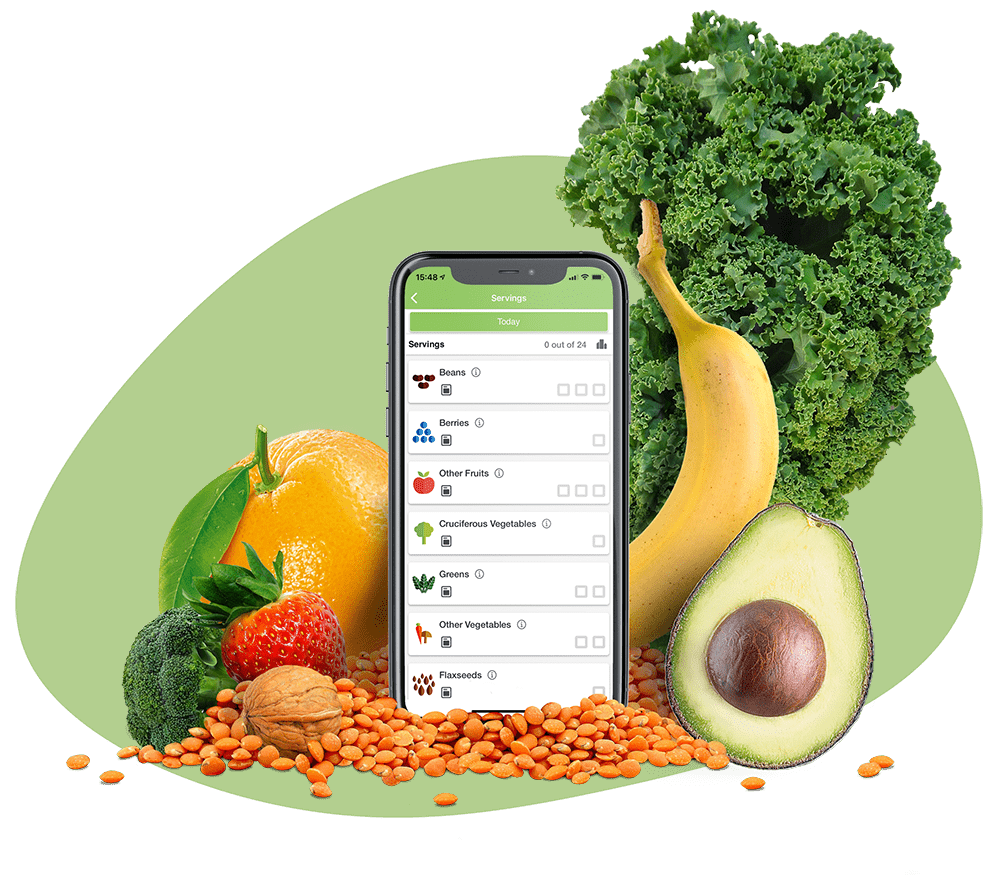
Apoya nuestro trabajo con una contribución para que podamos seguir creando recursos como la Docena Diaria.

